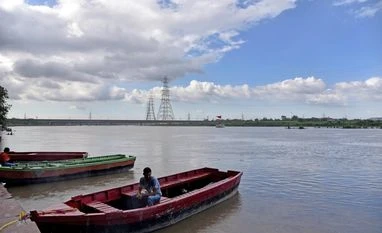The Delhi government has told the Supreme Court that Haryana has not taken any concrete step to address its grievance over discharge of untreated pollutants causing rise in ammonia level in the Yamuna and release of insufficient water which led to reduction in supply in some areas here.
The Aam Aadmi Party (AAP) government has filed its rejoinder affidavit in the apex court in response to the reply of Haryana and its Department of Irrigation and Water Resources.
A bench headed by Chief Justice S A Bobde, on March 26, had directed the Haryana government and others to continue with the status quo on supply of Yamuna water to Delhi, making it clear that it should not be reduced to the national capital which is facing a shortage.
The AAP government, which had moved the top court in January this year, through Delhi Jal Board (DJB), has sought directions to Haryana to cease the discharge of untreated pollutants into the Yamuna and release sufficient water to the national capital which is facing potential crisis.
The rejoinder affidavit, filed through DJB's Chief EngineerM K Hans, has termed the entire reply of Haryana and its department concerned as an exercise in obfuscation.
The entire reply is an exercise in obfuscation, wherein the Respondents No. 1 and 2 (Haryana and its department concerned) have effectively sought to assert a 'right to pollute' the River Yamuna, taking advantage of their geographical location as an upper riparian state.
The entire reply discloses absolutely no efforts on the part of the Respondents No. 1 and 2 to take any concrete steps to address the discharge of untreated pollutants that cause a rise in ammonia levels in the River Yamuna, the 26-page affidavit of Delhi government said.
Also Read
It said the Delhi government has moved the top court because of the precipitate water crisis in the national capital and it has been held by this court on multiple occasions that the right to clean and adequate drinking water forms part of the right to life under Article 21 of the Constitution.
Haryana has an abundance of drinking water, with the per capita availability of drinking water being far higher than that of Delhi and it is an upper riparian state that is serviced not just by the River Yamuna, but by various other rivers, it said.
The continued actions/inaction of the Respondents No. 1 and 2 have led to large scale reductions of up to 30 per cent in water supply in many areas supplied by the Wazirabad, Chandrawal and Okhla Water Treatment Plants, and has a direct and potentially devastating impact on the right of residents of the NCT of Delhi to clean and adequate drinking water, it said.
On April 11, the ammonia level in Yamuna at the point it enters the Wazirabad reservoir is 4.4 ppm, which is much higher than the ammonia level that the plants of the Delhi government can process for purification, it said.
This has resulted in the Wazirabad water treatment plant functioning at 71 per cent of its capacity, the Chandrawal water treatment plant at 84 per cent of its capacity and the Okhla water treatment plant at 86 per cent of its capacity as of 11.04.2021, causing large scale water shortage, it said.
The apex court had on April 6 deferred the hearing on Delhi government's plea.
In its application, the DJB claimed that Haryana government has reduced the supply of raw water to Delhi, resulting in shortage of water supply in the national capital.
The DJB had said that Delhi is facing a potential severe water crisis due to high ammonia levels in the Yamuna and the continuously depleting water level at Wazirabad barrage, which supplies drinking water to the Wazirabad, Okhla and Chandrawal water treatment plants.
Raw water is sourced from the Yamuna and is drawn at Wazirabad barrage, it had said, adding that the quantity and quality is dependent on the release of water by the Haryana government.
Haryana supplies water to Delhi through the Carrier-Lined Channel (CLC), Delhi Sub-Branch (DSB) and the Yamuna. The CLC and DSB supply water from Hathni Kund via Munak canal and Bhakra Beas Management Board.
The apex court had on January 13 said that pollution-free water is a fundamental right which a welfare state is bound to ensure, and issued notices to the Centre, CPCB and five states including Delhi and Haryana on the issue.
The top court, while appointing senior advocate Meenakshi Arora as amicus curiae, had directed its registry to register the suo motu case as 'Remediation of polluted rivers', and said it would first take up the issue of contamination of the Yamuna river.
(Only the headline and picture of this report may have been reworked by the Business Standard staff; the rest of the content is auto-generated from a syndicated feed.)
)